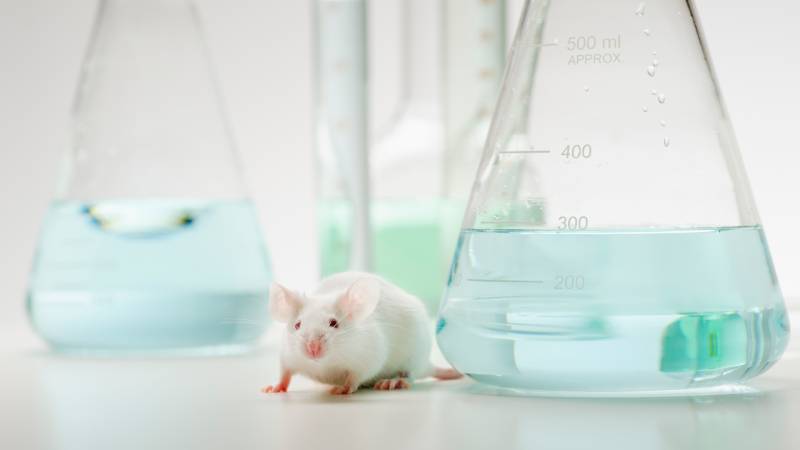New Website Helps Researchers Overcome Peer Reviewers’ Preference for Animal Experiments

WASHINGTON, D.C.—A new website, AnimalMethodsBias.org, created by the Coalition to Illuminate and Address Animal Methods Bias (COLAAB), provides researchers guidance and resources aimed at helping them successfully publish nonanimal biomedical research by overcoming the preference some peer reviewers have for animal-based research methods.
“We recently found that half of researchers surveyed had been asked by reviewers to add an animal experiment to their otherwise animal-free study,” says Catharine E. Krebs, PhD, who leads the COLAAB and is a medical research program manager with the Physicians Committee for Responsible Medicine. “The publish-or-perish academic paradigm can pressure researchers to concede these requests—even when they don’t think they’re justified.”
Animal methods bias can cause delays in publication or force authors to resubmit to other journals, often lower-impact ones.
Nonanimal methods, including complex in vitro models derived from human cells, like tissue chips and organoids, are becoming increasingly popular among biomedical researchers to model human biology and clinical characteristics.
“Addressing animal methods bias and other barriers to the broader use of nonanimal approaches will require systemic changes across the biomedical enterprise, but there are actions researchers can take in the meantime to boost their chances of publishing animal-free studies,” adds Krebs.
AnimalMethodsBias.org is now available for nonanimal researchers to use when designing studies, preparing and submitting manuscripts, and responding to reviews. It houses the COLAAB’s Author Guide for Addressing Animal Methods Bias in Publishing, which has several sections intended to help prevent and address instances of animal methods bias, like the requests for animal experiments described above. The Author Guide includes detailed sections on:
- Experimental Resources. A database of animal-free experimental platforms and tools.
- Preregistration. Information on specifying and registering a research plan before conducting the study.
- Manuscript Preparation. Best practices for framing and reporting findings.
- Journal Database. Journals with a track record of publishing nonanimal studies for consideration upon submission.
- Suggesting Reviewers. Recommendations for finding and suggesting suitable reviewers during manuscript submission.
- Responding to Biased Reviews. Guidelines and template responses to help authors to identify biased reviews and address them confidently.
- Reference Library. A comprehensive library of more than 800 papers and other references relevant to animal-free research.
Originally published in Advanced Science, the Author Guide is now living resource that will be kept up to date with the rapidly evolving field of nonanimal methods. The COLAAB encourages feedback on additions and amendments to its databases and reference library. The site also includes a list of COLAAB publications as well as information on upcoming and past COLAAB events at meetings including the European Society for Alternatives to Animal Testing Congress, the Latin American Congress on Alternative Methods to Animal Testing, and the American Society for Cellular and Computational Toxicology Annual Meeting.
The COLAAB was formed following an April 2022 workshop exploring animal methods bias in publishing. The COLAAB is an international collaboration of researchers and advocates led by the Physicians Committee for Responsible Medicine and including representatives from Humane Society International, the Berlin Institute of Health at Charité, the Center for Alternatives to Animal Testing at Johns Hopkins Bloomberg School of Public Health, Utrecht University, York St John University, Fund for the Replacement of Animals in Medical Experiments, and People for the Ethical Treatment of Animals, as well as independent scholars. In 2024, the COLAAB won the Lush Prize Recognition Award for Major Science Collaboration.
Media Contact
Michael Keevican
202-527-7367
mkeevican[at]pcrm.org
Founded in 1985, the Physicians Committee for Responsible Medicine is a nonprofit organization that promotes preventive medicine, conducts clinical research, and encourages higher standards for ethics and effectiveness in education and research.








